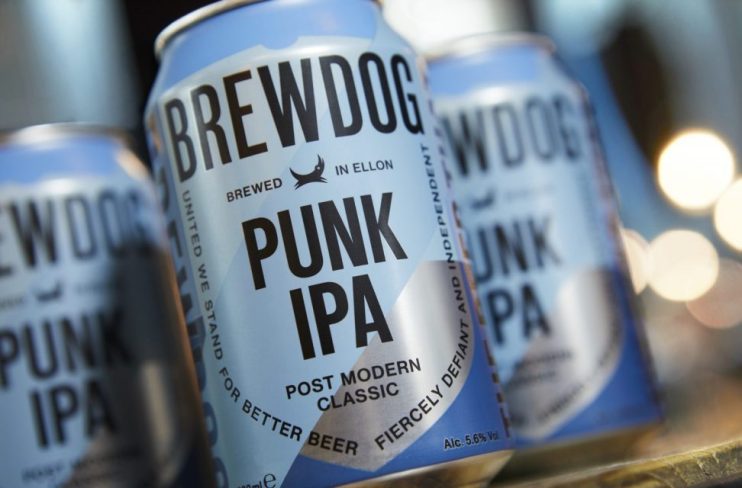Trouble brewing at BrewDog: Can co-founder James Watt apologise his way out of a toxic culture?

Last week was a rocky one for self-styled “punk” brewers BrewDog. Some 60 former employees under the collective name of Punks with Purpose posted an open letter on Twitter, in which they accused the company and its founders, James Watt and Martin Dickie, of fostering a “cult of personality” and alleged that a “culture of fear” and “toxic attitude” had left many of them suffering from mental illnesses.
The specific allegations were damning for any enterprise. The letter spoke of outright lies for the sake of publicity, such as the founders changing their names to Elvis and sending “protest beer” to Russia, and a focus on vanity projects like brewing an eco-friendly beer with glacier water, half of which was then poured down the drain.
The overall picture is one of success at any cost: employees, initially enthusiastic about the image of the business “discover[ed] that “fast-paced” meant “unmanageable”, and “challenging” meant “damaging”. Moreover Watt and Dickie were portrayed as autocratic and self-serving, presiding over a company driven by ego and a personal desire for wealth and fame.
These allegations would be damaging for any firm, but they are particularly—to use the word of the former employees—”toxic” because BrewDog has worked so hard to portray itself as a matey, authentic brand, one fired with a purpose to provide an honest product and communicate fairly with its customers. If Watt and Dickie do indeed have feet of clay, many will be bitterly disillusioned.
BrewDog is not alone in setting high standards and failing to achieve them. BlackRock, the investment giant, made earnest pledges on diversity and inclusion in 2020 in the wake of the killing by police of George Floyd in Minnesota. The CEO, Larry Fink, promised to double the number of senior black leaders in the firm and set a target of a 30 per cent increase in black employees. Yet an investigation by Institutional Investor earlier this year found extensive evidence of harassment and discrimination at BlackRock, and Fink was forced into an embarrassing public apology.
James Watt, too, has taken the allegations of his former employees on the chin. With the voice of his legal team presumably whispering in his ear, he did not comment on the accuracy of the individual claims, but his tone and approach were significant.
“For me, it’s not about disputing individual claims. But 60 people were unhappy and we have to get better. That’s the only way we can get something good out of this situation.”
Watt went on to say that the way that BrewDog had grown had involved a steep learning curve, and insisted that expansion would not come to a halt because “that’s in our DNA”. However, he admitted that “the buck stops with me. I will use (the criticism) to be a better chief executive and leader”, and said that he wanted the company to “be a better employer”.
This may not be the absolute mea culpa for which the former BrewDog workers might have hoped. But Watt’s decision not to dig and react defensively is a shrewd move. The brewer’s image is all-important to distinguish it from its competitors. He understands that he has not reached the levels of success he currently enjoys, with a cabinet full of awards and a recent Forbes valuation of about $2 billion, by doing better than other brewers, but by doing different. If BrewDog loses that sense of purpose, of social awareness and of authenticity, then it will lose its place in the market.
It remains to be seen whether Punks with Purpose will have a serious long-term effect on their former employer. Their creation of a website and Twitter account (they have 11,000 followers and warn, ominously for Watt and Dickie, “Stay tuned for updates”) suggest they have a deeper mission than merely a litany of complaints. However, by instinct or good advice, Watt has handled the beginning of this crisis well.
In the end, it all comes down to authenticity. It is the quality on which BrewDog has built its reputation, and Punks with Purpose knew that it was the most sensitive target for their accusations. And it is also the characteristic which Watt has sought to embody in his initial response. Yes, he has said, we got things wrong, and, while these mistakes might have been made in the heat of battle, they remain mistakes for which he, as the CEO, is culpable.
A lesson is valuable only if it is learned, and, in business, seen to be learned. James Watt has consumed the meal of humble pie which Punks with Purpose served up to him, and he has done so with good grace. In the coming weeks and months he must make demonstrable progress in addressing the accusations made against him and the culture he has instilled, and if he does so, customers—who are, after all, the only arbiters who matter—will retain their faith in BrewDog and in its punk ethos. So far Watt’s response has been necessary. Soon we will see if it has been sufficient too.